
 Flash News
Flash News
Video/ The Dukat Hills are engulfed in flames, the fire spreads rapidly over the village
Texas tragedy: 59 dead and 27 girls still missing after devastating floods
VIDEO/ Gang fight in Greece revealed, 12 arrested, including Albanians
He lived on money with usury and threatened people, the deputy commissioner in Elbasan was arrested (NAME)
NAME/ Drugs and illegal weapons, young man arrested in Durrës, accomplice under investigation
The US Senate is investigating the connections of Albanian and Serbian officials with Jared Kushner's projects
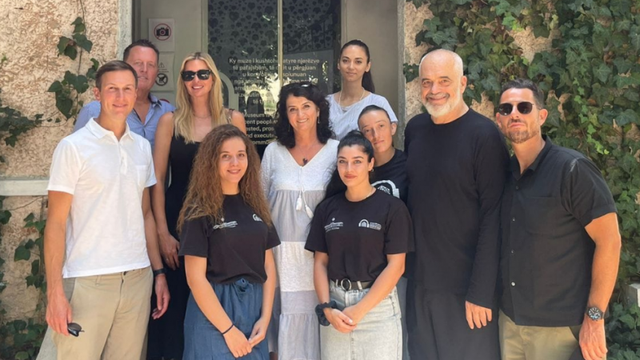
A United States Senate committee is seeking the names of Serbian and Albanian government officials who approached a company linked to Donald Trump's son-in-law for property development projects.
The United States Senate Finance Committee said Wednesday that its investigation into Affinity Partners has revealed that Serbian and Albanian government officials proactively approached the company with proposals for real estate development projects in their countries.
The stock and investment company is linked to Jared Kushner, son-in-law and adviser to former US President Donald Trump.
In a letter to Affinity, Senate Finance Committee Chairman Senator Ron Wyden said the committee is now seeking to identify the officials and intermediaries involved in these communications.
The letter from the Finance Committee was sent around the same time that Trump's eldest son, Donald Trump Jr., was in Belgrade to meet with Serbian businessmen, while the US presidential campaign, in which Trump is the Republican candidate, is entering its final stages.
Senator Wyden, a Democrat from Oregon, launched the investigation into Affinity Partners in June following reports of planned investments in Serbia and Albania. In Serbia, the company is expected to reconstruct the former Yugoslav Military Headquarters in Belgrade that was heavily damaged during the NATO bombing of Yugoslavia in 1999.
In her communications with the Committee, Wyden said Affinity had confirmed that the planned development of the Belgrade site would include a "museum described as a monument to 'victims of NATO aggression'".
Wyden is very critical of this proposed memorial: "It is completely inappropriate for a foreign government to ask an American firm to participate in this kind of anti-American revision of history, an act that attempts to erase ethnic cleansing and genocide and makes NATO look like a negative character. It is shocking that a firm founded and owned by the family of a former president and a candidate who may be the next president of the United States would admit this," he wrote.
The company also plans to invest in luxury real estate projects on the Albanian coast. The media has reported that among other foreign investors, Affinity Partners has received $2 billion in funding from Saudi Arabia's Public Investment Fund.
In his initial letter to the company, Wyden requested records and information on the "tens of millions [of dollars] that Kushner is receiving from the Saudis and other foreign sources each year by exploiting legal loopholes on the transparency of private investment funds to hide these agreement from the public".
In a subsequent letter, published this week, Wyden requested “a detailed list of Albanian government personnel, or individuals who have contacted Affinity on behalf of the Albanian government, who have first contacted Affinity to discuss property investments real estate in Albania". He made a similar request to Serbian officials.
Wyden also wants copies of all communications between Affinity employees and members of the Trump family related to these projects, including Kushner's wife, Ivanka Trump.
Affinity has confirmed to Wyden that the Serbian and Albanian governments will have full control over all aspects of these potential projects, including decision-making power over permits, local taxes and licenses for the projects.
However, Wyden wrote that this means that Serbia and Albania will have "potentially extortionate control over the family investments of whoever may be the next president." According to Wyden, such a level of government involvement raises questions about the nature of these relationships.
“For both proposed real estate developments, the Serbian and Albanian governments appear to own the land and have broad discretion over how it is used. These conditions allow the Serbian and Albanian governments to seek unusual benefits from Affinity during the process," Wyden stated.
According to Wyden's letter, Affinity has earned $157 million in payments from foreign clients, including $87 million from the government of Saudi Arabia.
Affinity has informed the Committee that it charges its main investor, Saudi Arabia's Public Investment Fund, an annual interest of 1.25 percent on the $2 billion in pledged funds and that other investors are paying more than 2 per percent interest on the promised funds.
Wyden claims Affinity's fee structure is outrageously high, given market trends and the relative lack of experience of Kushner and other Trump-connected employees in the industry.
Affinity says its funds have generated no investment returns to date and have not distributed any profits to clients.
Wyden claims Affinity's dependence on a small group of investors linked to foreign governments also raises concerns about the Foreign Agents Registration Act, FARA, which regulates foreign lobbying in the US.
"Since 100 percent of Affinity's external capital and revenue sources come from foreign sources, primarily sovereign wealth funds, I am concerned that Affinity's private equity funds are being used by former US government officials as a way to received compensation from foreign governments without declaring these payments under FARA,” Wyden wrote.
The size of the Saudi investment has long raised questions. The New York Times reported in April 2022 claims that the investment "seems like a possible reward for Kushner's actions in the White House — or a bid for future favors if Trump seeks and wins another presidential term in 2024."
The Serbian opposition first disclosed the information that the American company would invest in Serbia in March.
The project was criticized in reports due to suspicions of corruption, but also because of the architectural and cultural value of the damaged former Yugoslav Military Headquarters in Belgrade. The building was built in 1965 and was designed by the renowned Serbian architect Nikola Dobrovic./BIRN
Latest news




Theologian: Behind Rama's idea for a Bektashi state in Albania, Israel is hiding
2025-07-06 20:57:48
Rama's rhetoric without standards, comparing Paris, London, New York with Vlora
2025-07-06 20:35:52
Vehicle goes off the road, driver dies in Kukës
2025-07-06 20:07:47
What is the possible agreement on the Gaza hostages and the ceasefire?
2025-07-06 19:47:09

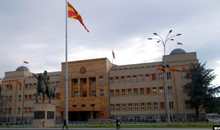
Massive hiring in the Macedonian administration ahead of the elections
2025-07-06 18:37:19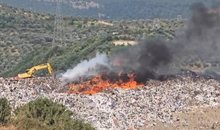

Texas tragedy: 59 dead and 27 girls still missing after devastating floods
2025-07-06 17:48:24
Albania for sale and purchase by Jared Kushner
2025-07-06 17:17:37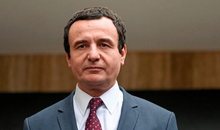
Kurti reacts to bomb threat in Parliament: Active hybrid war from Serbia
2025-07-06 16:55:59

After clashing with Trump, Musk says he's forming a new political party
2025-07-06 16:14:27
Turkey increases political influence in the Western Balkans
2025-07-06 15:48:14
Dalai Lama turns 90 amid global adoration
2025-07-06 15:27:46
Tax for singles or those who do not leave
2025-07-06 15:04:00
Earth farther from the Sun, but scorching heat! Why is this happening?
2025-07-06 14:51:26
Fire at the Incinerator/ Gjokutaj Ironizes: PS should name the city Qelbasan!
2025-07-06 14:35:10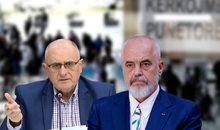
The youth exodus and Rama's political carnivals!
2025-07-06 14:16:04
VIDEO/ Gang fight in Greece revealed, 12 arrested, including Albanians
2025-07-06 13:47:52

Albania in fire, Rama at sea (VIDEO)
2025-07-06 13:04:45
New tactic revealed! France uses "Jet Ski" to stop migrants heading to Britain
2025-07-06 12:41:13
Balluku is becoming "Veliaj 2"
2025-07-06 12:16:11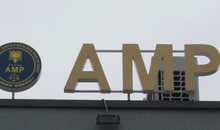
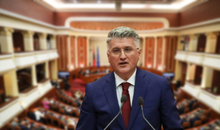



Why shouldn't we take cold showers during a heat wave?
2025-07-06 10:39:16
Fire alarm in the country, 6 fires still active, what is the situation so far?
2025-07-06 10:10:04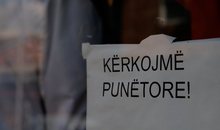

Vietnam and the US sign a customs agreement
2025-07-06 09:39:42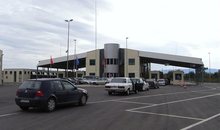

2-year-old girl drowns in family pool in Kosovo
2025-07-06 09:11:18
Albania, as a migration laboratory
2025-07-06 08:54:18
Today's horoscope, what the stars have predicted for each sign
2025-07-06 08:37:51

Temperatures up to 40 degrees! Weather forecast for today
2025-07-06 08:00:35
Morning Post/ In 2 lines: What mattered yesterday in Albania
2025-07-06 07:45:21
When 90 minutes awaken decades of history: Albania – Serbia, beyond football
2025-07-05 21:51:55
Not only the body, swimming also helps the brain
2025-07-05 21:02:49
"Be careful with the water", Alimehmeti warns about the health risks of summer
2025-07-05 20:39:10
PSG beats Bayern Munich 2-0, advances to Club World Cup semifinals
2025-07-05 20:19:38

Two vehicles collide on the Elbasan-Peqin axis, drivers injured
2025-07-05 19:26:29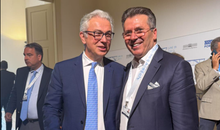

What does Zelenskyy have more than Zegjineja?
2025-07-05 18:45:26

Fiscal peace, but at a cost
2025-07-05 18:00:10
'Bankers' tax evasion, Chinese CEO and former director jailed
2025-07-05 17:39:21
Kyle Walker joins English club on two-year deal
2025-07-05 17:20:24
Two cars collide on the Saranda-Delvina axis, 4 injured
2025-07-05 17:05:29
Touching gesture! Liverpool will pay Jota's family's salary until 2027
2025-07-05 16:45:18
The zodiac signs that cheat most often
2025-07-05 16:25:53

"I asked for the dismissals", Dredha tries to soften Rama's 'blow' in Vlora
2025-07-05 15:48:49
Bomb threat in Parliament, prosecutor: It was a lie
2025-07-05 15:22:28

Bardhi: The recount revealed how greedy Zeqine Balluku is in stealing
2025-07-05 14:44:29
Knife wound on the secondary road Tirana-Durrës, perpetrator sought
2025-07-05 14:37:54
Tears and pain, Diogo Jota is escorted to his final home
2025-07-05 14:21:34
Success starts with yourself! Simple ways to invest in personal development
2025-07-05 13:58:50
Unlicensed firearms found in apartment, 50-year-old arrested in Lushnje
2025-07-05 13:43:11

Tirana Court remands Skerdi Sina to prison
2025-07-05 12:59:34
Cocaine laboratory in Greece, here are the Albanians arrested and wanted
2025-07-05 12:40:16
Directed Justice/Vangjeli: SPAK does not investigate any scandal involving Rama
2025-07-05 12:22:03

Bomb alert, Police remove MPs and media from Kosovo Parliament building
2025-07-05 11:48:16
"The will of the people" and the irony of ordered resignations
2025-07-05 11:32:05
Summer drowning risk: How to enjoy the water without risking your life
2025-07-05 11:20:27
Fire situation in the country, 16 fires reported in 24 hours, 4 still active
2025-07-05 11:07:04
Car hits pedestrian at white lines, injured in serious condition in Vlora
2025-07-05 10:59:58
Mosquito-borne diseases are a growing problem in Europe
2025-07-05 10:44:13



One of Sweden's most dangerous and wanted criminals arrested in Turkey
2025-07-05 09:38:29
Foreign exchange/ How much foreign currencies are bought and sold today
2025-07-05 09:18:38

"Don't be influenced by the opinions of others", today's horoscope
2025-07-05 08:40:50

Morning Post/ In 2 lines: What mattered yesterday in Albania
2025-07-05 08:02:07

Trump says he's ready to raise tariffs to 70% on some countries
2025-07-04 22:35:52
Tre shenjat e zodiakut që do ‘pasurohen’ në Korrik
2025-07-04 22:05:09
Gaza War: Hamas Accepts US Proposal for 60-Day Ceasefire
2025-07-04 21:50:10
Autocracy in Albania, Fuga: Governance has gotten out of control
2025-07-04 21:40:51
Meta: Agriculture on credit, the new fraud!
2025-07-04 21:26:39




Vote recount in Durrës ends without changes
2025-07-04 20:12:54
Gas station explodes in Rome, 25 injured (VIDEO)
2025-07-04 20:00:20

